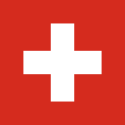
Hospital
If you need medical care outside of normal surgery hours there is usually a duty doctor on call for emergencies. They may be at another location, but you can find where they are located by calling your regular surgery. There are also special emergency clinics for minor casualties, which are known as Pikett-Dienst or permanence. Information on local medical emergency services is available at the local police stations as well as in the yellow pages and in the local press. If you need an ambulance you should dial 144.
Hospitals (Krankenhaus, Spital/hopital) can also be recognized by a white "H" on a blue background and are listed in the yellow pages under Spitaeler or hopitaux. Emergency departments are open at all hours every day of the year. Except for emergencies, you usually have to be referred to a hospital by a doctor. You normally have to visit a hospital in the canton where you are residing, although there are exceptions.
The quality of rooms and care are excellent. Privacy is governed by the quality of a person's health insurance scheme. Privately insured patients will get a single room. State insured patients with standard cover may have to share with two or three other people and those with half-private cover will share with one other person. Those with standard cover will not be able to choose the doctor who treats them in hospital.
- Permanence Hauptbahnhof - Located at the main train station, this site provides urgent out-patient care for tourists without prior appointments.
- Kantonsspital - The university clinic has a 24/7 emergency ward. They will not send away people with serious, urgent health problems.
Bills
Emergency care (Notfalldienst or urgences) is not free and once your condition is stabilized you will have to provide proof of your insurance status. All hospital fees have to be paid for either by you or your insurance company. If the decision is up to you whether or not to go into the hospital, you should first talk to your insurance company.
After leaving the hospital, you will receive a bill which you should pay within the specified period (usually 30 days). You then send a copy to your insurance company, which will reimburse the percentage covered by your insurance scheme. If you are not resident in Switzerland and don't have any sufficient health insurance, hospitals can require a deposit upon your admittance.
The cost of hospital stays has encouraged home medical care known as Spitex. The basic insurance package covers this service, which is provided by the communes. Often the treatment itself is provided by private doctors and nurses.
Pharmacy
Pharmacies are known as Apotheke or pharmacie. These are different from drug stores (known as Drogerie) where you can purchase cough mixture and other non prescription drugs. Pharmacies can be recognized by the sign of a green cross on a white background. In case of emergencies, one pharmacy remains open in every area day and night.
There are two types of medication: freely-available and prescription only medicines.
Non-prescription medicines - Medications like pain killers and cold remedies are readily available, but not covered by health insurance. Since medicines in Switzerland are among the most expensive in Europe, it is wise to bring your own supply.
Prescription drugs - only available if a doctor has prescribed them on a Rezept (prescription). You then take the prescription to the pharmacy and the pharmacist issues the medicines.
Prescription medicine which is on the government's official list is reimbursable through the basic insurance package with 10 percent of the overall cost paid by the patient. All other medicine need to be paid for in full by the patient, unless there is additional insurance which supplements all medicine.
Some insurance companies give their members an insurance card, which you show at the pharmacy. This allows the pharmacy to charge the insurance company rather than the individual. The insurance company then bills the individual for the 10 percent contribution to the cost of the prescription.
Dental
Dental care is provided mainly by private dental practices, with some public dental clinics. Like most things in Switzerland, care is expensive and is not usually covered by the basic health insurance scheme.
Update 18/08/2011
Expatriate health insurance in Switzerland
With so much to deal with before leaving your home country, (taxes, moving house, paperwork etc.) the careful planning of your expatriation to Zurich is an essential step. As far as healthcare is concerned, your local social security scheme won’t be accompanying you to your host country and, once abroad, you might be surprised by the care system you find in Switzerland So, before leaving, make sure you have appropriate cover!

Cigna is one of the world's biggest international insurers with more than 30 years' experience in providing global health insurance across 200 countries and territories. They have access to more than 1.65 million hospitals, physicians, clinics and specialists worldwide.
Cigna Global's flexible plans are specifically designed for expats and globally mobile individuals who move to Switzerland. All their plans can be tailored to your individual requirements in Switzerland, always finding the right healthcare solution, whatever the situation and budget.
Getting a health insurance quote
Create your perfect plan with Cigna and combine the reassurance of comprehensive inpatient cover with the flexibility of optional extra benefits.
Click on the button to access the online tool and get a quote in 2 minutes.
